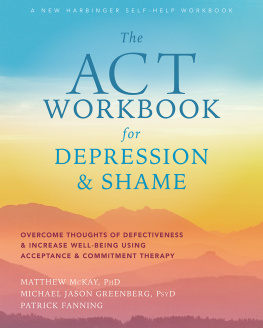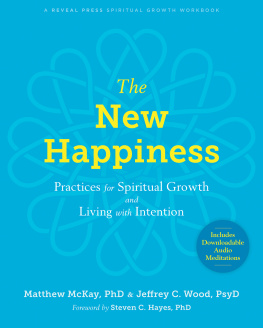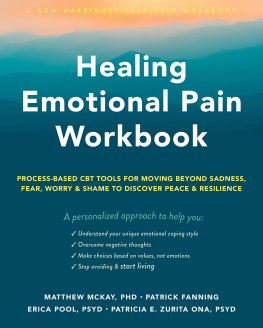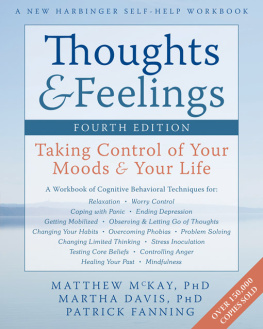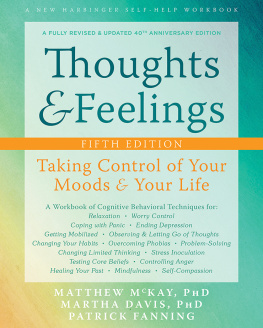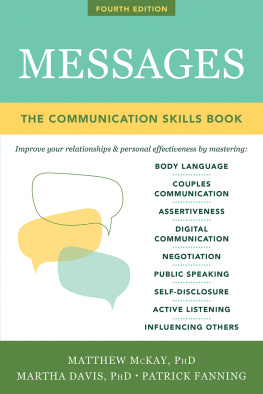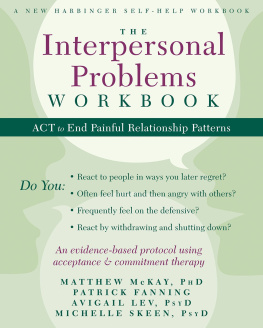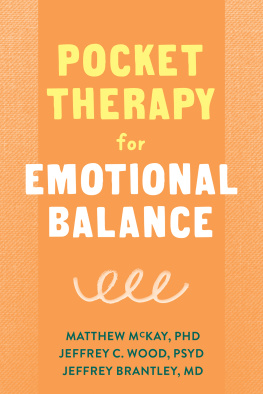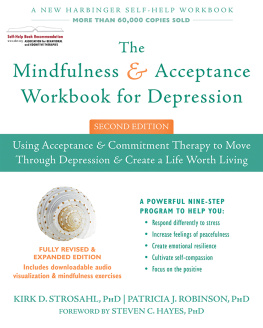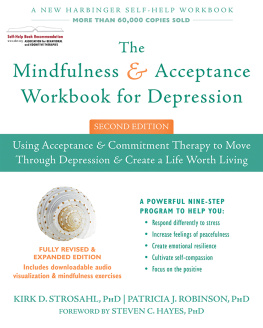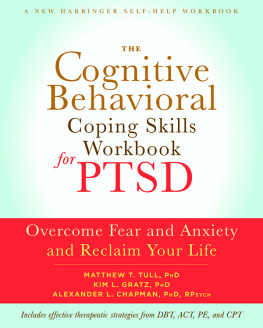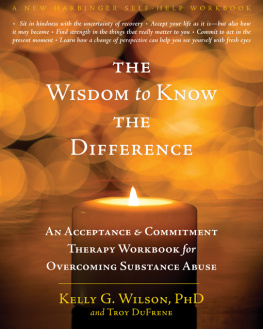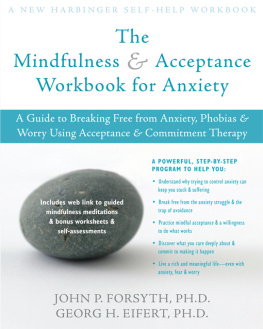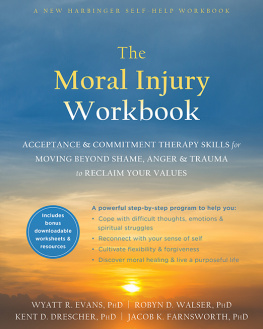Matthew McKay - The ACT Workbook for Depression and Shame: Overcome Thoughts of Defectiveness and Increase Well-Being Using Acceptance and Commitment Therapy
Here you can read online Matthew McKay - The ACT Workbook for Depression and Shame: Overcome Thoughts of Defectiveness and Increase Well-Being Using Acceptance and Commitment Therapy full text of the book (entire story) in english for free. Download pdf and epub, get meaning, cover and reviews about this ebook. year: 2020, genre: Religion. Description of the work, (preface) as well as reviews are available. Best literature library LitArk.com created for fans of good reading and offers a wide selection of genres:
Romance novel
Science fiction
Adventure
Detective
Science
History
Home and family
Prose
Art
Politics
Computer
Non-fiction
Religion
Business
Children
Humor
Choose a favorite category and find really read worthwhile books. Enjoy immersion in the world of imagination, feel the emotions of the characters or learn something new for yourself, make an fascinating discovery.
- Book:The ACT Workbook for Depression and Shame: Overcome Thoughts of Defectiveness and Increase Well-Being Using Acceptance and Commitment Therapy
- Author:
- Genre:
- Year:2020
- Rating:4 / 5
- Favourites:Add to favourites
- Your mark:
- 80
- 1
- 2
- 3
- 4
- 5
The ACT Workbook for Depression and Shame: Overcome Thoughts of Defectiveness and Increase Well-Being Using Acceptance and Commitment Therapy: summary, description and annotation
We offer to read an annotation, description, summary or preface (depends on what the author of the book "The ACT Workbook for Depression and Shame: Overcome Thoughts of Defectiveness and Increase Well-Being Using Acceptance and Commitment Therapy" wrote himself). If you haven't found the necessary information about the book — write in the comments, we will try to find it.
Matthew McKay: author's other books
Who wrote The ACT Workbook for Depression and Shame: Overcome Thoughts of Defectiveness and Increase Well-Being Using Acceptance and Commitment Therapy? Find out the surname, the name of the author of the book and a list of all author's works by series.
The ACT Workbook for Depression and Shame: Overcome Thoughts of Defectiveness and Increase Well-Being Using Acceptance and Commitment Therapy — read online for free the complete book (whole text) full work
Below is the text of the book, divided by pages. System saving the place of the last page read, allows you to conveniently read the book "The ACT Workbook for Depression and Shame: Overcome Thoughts of Defectiveness and Increase Well-Being Using Acceptance and Commitment Therapy" online for free, without having to search again every time where you left off. Put a bookmark, and you can go to the page where you finished reading at any time.
Font size:
Interval:
Bookmark:

Some of our greatest lessons result from experiencing shame if we are able to learn from the emotion. McKay, Greenberg, and Fanning illuminate the foundation of shame in defectiveness schemas; and the negative, automatic thoughts and coping mechanisms that accompany this behavioral pattern. They help readers recognize the thoughts associated with the experience of shame in defectiveness schemas, including hypersensitivity to criticism, blame, comparison, and rejection. Through facilitating the clarification of values and employing mindfulness practices, they guide readers to an awareness of the emotion and its accompanied sensations, thoughts, and urgesskillfully demonstrating an approach that leads to accepting feelings, having self-compassion, and responding in new ways.
Mary Lamia, PhD , clinical psychologist, professor, and coauthor of The Upside of Shame
For anyone struggling with depression, McKay, Greenberg, and Fanning have combined in one amazing book the key to understanding your illness and the method of unlocking its grip on your life. The authors have created a step-by-step process to rewrite negative self-beliefs, change feelings of defectiveness, live a meaningful life, and develop self-compassion. Surely anyone who follows their guidance will experience a significant life improvement.
Jeffrey C. Wood, PsyD , psychologist, and coauthor of The Dialectical Behavior Therapy Skills Workbook and The New Happiness
An incredibly powerful, well-written, and important book for addressing the feelings of inadequacy, defectiveness, shame, unlovability, and hopelessness that often come with depression. Using techniques from acceptance and commitment therapy (ACT), this workbook offers valuable strategies for addressing childhood wounds, rewriting your story, and moving toward individual values and goals. It gives readers a critical opportunity to change the way they see themselvesand to subsequently change their lives.
Rachel Zoffness, PhD , assistant clinical professor at the University of California, San Francisco; chair of the American Association of Pain Psychology; and author of The Pain Management Workbook and The Chronic Pain and Illness Workbook for Teens
At last, a book that brings light to what most clinicians intuitively understand: the relationship between shame and depression. The authors clarify the origins and maintenance of depression by identifying and deconstructing defective schemas. Complex concepts are conveyed clearly and illustrated through case studies. Exercises and worksheets prompt the client to identify triggers and to reframe thoughts. Psychotherapists and laypersons will find this book an essential tool in treating depression
Cynthia Boyd, PhD , forensic neuropsychologist in independent practice in La Jolla, CA
When someone has the belief that they are defective in some way, it can lead to a fear of getting close to others, often resulting in loneliness, depression, and shame. If you feel this way, you are not alone. This workbook will help you identify what is standing in the way of believing you are worthy of the love and acceptance that you deserve.
Michelle Skeen, PsyD , author of Love Me, Dont Leave Me ; and coauthor of Just As You Are
Thoughts related to shame and being defective affect a multitude of people; for many sufferers the tendency is to shut down, hide, isolate, disconnect from others, and stop living life. Who wants that? In this workbook, the authors introduce readers to skills derived from ACT to unpack these behaviors, stop being trapped by those narratives, and start living a fulfilling life. This is a workbook that is written in plain language, with lot of examples and specific skills to put into action. I highly recommend it!
Patricia E. Zurita Ona, PsyD , author of The ACT Workbook for Teens with OCD and Living Beyond OCD Using Acceptance and Commitment Therapy , director of the East Bay Behavior Therapy Center, and fellow of the Association for Contextual Behavioral Science
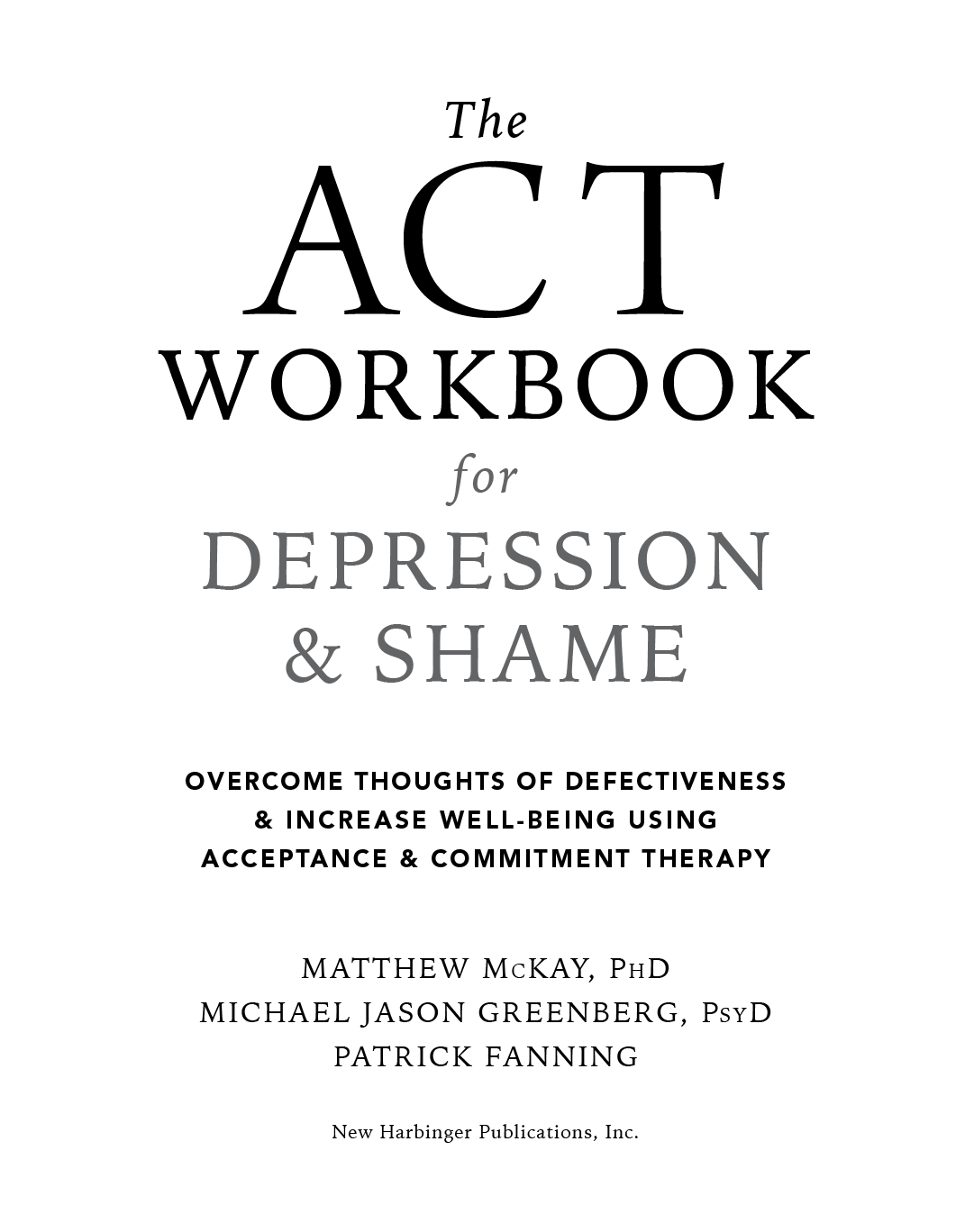
Publishers Note
This publication is designed to provide accurate and authoritative information in regard to the subject matter covered. It is sold with the understanding that the publisher is not engaged in rendering psychological, financial, legal, or other professional services. If expert assistance or counseling is needed, the services of a competent professional should be sought.
Distributed in Canada by Raincoast Books
Copyright 2020 by Matthew McKay, Michael Jason Greenberg, and Patrick Fanning
New Harbinger Publications, Inc.
5674 Shattuck Avenue
Oakland, CA 94609
www.newharbinger.com
Cover design by Amy Shoup
Acquired by Catharine Meyers
Edited by Jennifer Eastman
All Rights Reserved
Library of Congress Cataloging-in-Publication Data on file
Contents
Chapter 1:
Your Defectiveness Schema
If youre reading this book, there is a good chance that feelings of defectiveness and depression have been a part of your life. Youve been living with thoughts that youre flawed somehow, unworthy of other peoples respect, and no one could ever care about you. It might feel as if youve been living your life behind a cold and abrasive mask. This mask is heavy and burdensome in its crude design. Its weight saps energy, motivation, and desire from your body. Behind the mask, you experience the world from your own portable prison, far removed from the experiences of love, admiration, and connection that seem natural and easy to those living a normal life. With its oppressive and isolating nature, this weight has inspired you to try to free yourself from its grasp. For a while, things might have seemed like they were looking up for youstarting a new relationship, getting a new job, achieving some success. But in the end, it was only a matter of time before pain, rejection, and failure reminded you once again why you wore the mask in the first place. And each time you see that happy couple, read that positive status update, or hear that cheerful reassuranceEveryone feels sad at times or You just need to be positiveyou are reminded of how disconnected you are from the normal human experience. Perhaps its gotten to the point that you feel like nobody will ever truly love you.
If this sounds like you, maybe youve already given up on ever feeling normal, and you have resigned yourself to a life of feeling unfulfilled, depressed, and alone. But maybe youre reading this book because there is a part of you that wants to be freed from the crushing weight of depression. Maybe you picked up this book because youve decided it was time to approach your depression from a different perspective, and start your journey toward living a life of acceptance and empowerment, in which you can make decisions that are consistent with a life you value. If you have come to the point in your life when you are no longer content with hiding behind the heavy mask of depression and defectiveness, this book is written for you.
This book is different. It was written to teach you the techniques of mindfulness (the ability to nonjudgmentally notice your experience) and what is known, in acceptance and commitment therapy, as defusion (the ability to separate yourself from your thoughts and recognize your thoughts for what they are). Odds are that the thoughts that your depression and your sense of defectiveness generate in you are insistent and overwhelming. Mindfulness and defusion help you learn to look at those thoughts differently, so as to reduce their overwhelming nature and open space to act differently.
Font size:
Interval:
Bookmark:
Similar books «The ACT Workbook for Depression and Shame: Overcome Thoughts of Defectiveness and Increase Well-Being Using Acceptance and Commitment Therapy»
Look at similar books to The ACT Workbook for Depression and Shame: Overcome Thoughts of Defectiveness and Increase Well-Being Using Acceptance and Commitment Therapy. We have selected literature similar in name and meaning in the hope of providing readers with more options to find new, interesting, not yet read works.
Discussion, reviews of the book The ACT Workbook for Depression and Shame: Overcome Thoughts of Defectiveness and Increase Well-Being Using Acceptance and Commitment Therapy and just readers' own opinions. Leave your comments, write what you think about the work, its meaning or the main characters. Specify what exactly you liked and what you didn't like, and why you think so.

